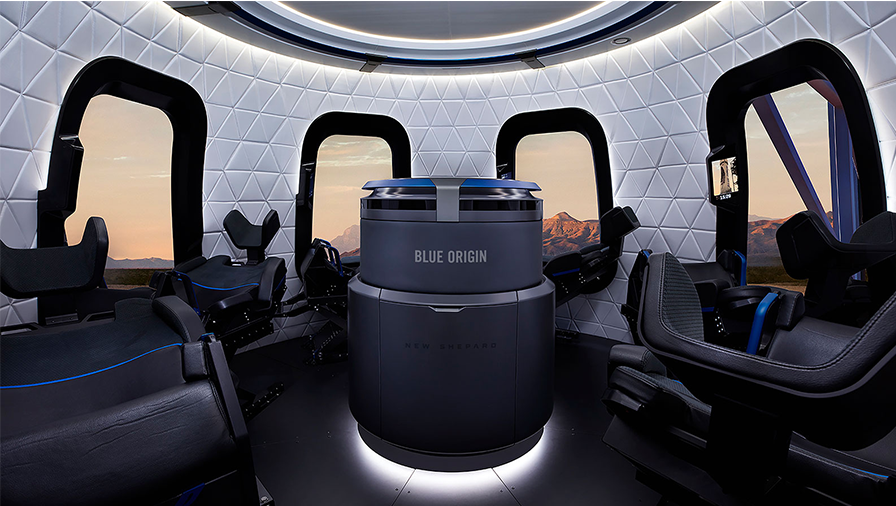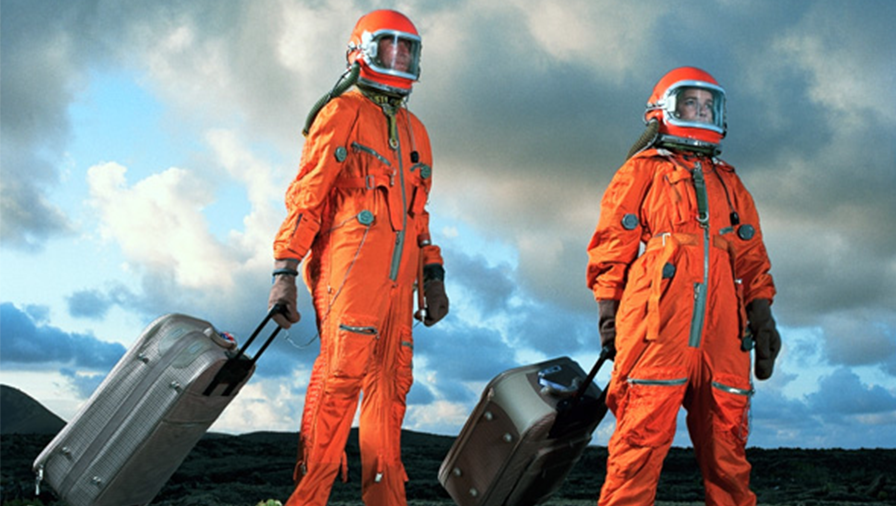Don’t be duped into loving or hating space tourism
Be critical of partisan commentary on space tourism, whether it be vitriol or adulation.
Be critical of partisan commentary on space tourism, whether it be vitriol or adulation.
News and social media feeds are awash right now with hot takes on billionaires going to space. There are basically two flavors of opinion: space tourism represents the downfall of civilisation, or space tourism is helping humanity to survive on Earth and, someday, on other planets.
Of course, space tourism is easy to criticise. The implications for climate change are, on the face of it, dire. If you were already horrified by the carbon costs of plane travel, then you will be devastated by the costs of space tourism. If space tourism becomes as common as Earthbound tourism, then its emissions will likely significantly contribute to human-induced climate change.
There is also something inherently distasteful about sending billionaires to space while so many people down here on Earth are suffering. Seeing Bezos emerge from his spaceship with a cowboy hat evokes a bit of classist resentment from even some of the most diehard space fans.
On the other hand, it is easy to argue that space tourism is ultimately a good thing for sustainability. Advances in space technology – whether in space tourism or other segments of the space economy – make space more accessible, and that is important.
How do you think we even understand humanity’s impact on Earth, anyway? Spaceborne sensors are critical for looking back on the Earth system and seeing it as a whole. Our understanding of human-induced climate change is built in no small part on comparative planetology.
Coincidence?
Is it a coincidence that the modern environmentalist movement emerged around the same time the Apollo astronauts sent back a photo of our Pale Blue Dot? The more that everyday humans gain a ‘cosmic perspective’, the more driven we will be to protect our planet.
As was the case with planes and automobiles, spacecraft will, of course, start off as elites’ playthings, but that is arguably a necessary step before their popularisation.
Both perspectives have merit.
One can debate the comparative weight of the merits, of course; acknowledging there are multiple views does not require you become paralysed with indecision. You can still be open-minded and act. The point is: it is false to deny that there are valid arguments on both sides, that there are compelling rationales both for and against space tourism.
It is not worth your time to listen to commentators who claim to have crystal balls telling them the future, that space tourism will certainly save or destroy humanity. Just think about it: if we cannot predict tomorrow’s stock prices, how can a commentator know the ultimate consequences of space tourism? It is a ludicrous claim to make.
You should be raising your eyebrows when reading any one-sided sermonising. (This holds true, by the way, on any topic of debate, not just space tourism.)

Probably, these words will have little impact on the opinions of people who have already decided which side of the debate they stand on.
For the hardcore partisans, they will likely have stopped reading this article in the opening sentences, dismissing it as misguided babble. Some may react more angrily, seeing this as potentially dangerous skepticism. The space buffs and the environmentalists will have dug into their trenches. They will be seeking ammunition to support their arguments. They will have no time to consider their perspectives’ limitations.
Positive and negative
But, for the rest of the world, for those who have not yet picked a side: it is okay to acknowledge that space tourism has both positive and negative consequences. It is okay to say that space tourism is a complex and nuanced issue and that it defies a simple ‘for/against’ response.
You can admit seeing Bezos step out of his rocket with his cowboy hat is annoying, but that he is also advancing technologies that will help us understand and manage our relationship with Earth.
You can recognise space tourism is problematic in terms of emissions, but that it may also help pave the way for more widespread appreciation of our planet’s fragility.
Humanity’s relationships with Earth and with space are issues of paramount importance. They deserve healthy debate. How should we live on this planet and how should we behave as we expand off it?

To answer such questions, we do not need zealots. Instead, we need people who are intelligent enough to acknowledge the complexity of such questions.
The staunch space buffs and environmentalists each think the other is being duped into a false narrative. The truth is they are the ones being duped; they fail to recognise they do not have a monopoly on truth.
Do not be duped. Do not think you must choose a side, that you must love or hate space tourism. Appreciate the complexity of the topic, inform yourself, make decisions, and act accordingly. But do not silo yourself from people with other perspectives.
Nicholas Borroz manages a space sector consultancy called Rotoiti. He is completing his doctoral studies in international business at the University of Auckland.
This is supplied content not commissioned for paid for by NBR.